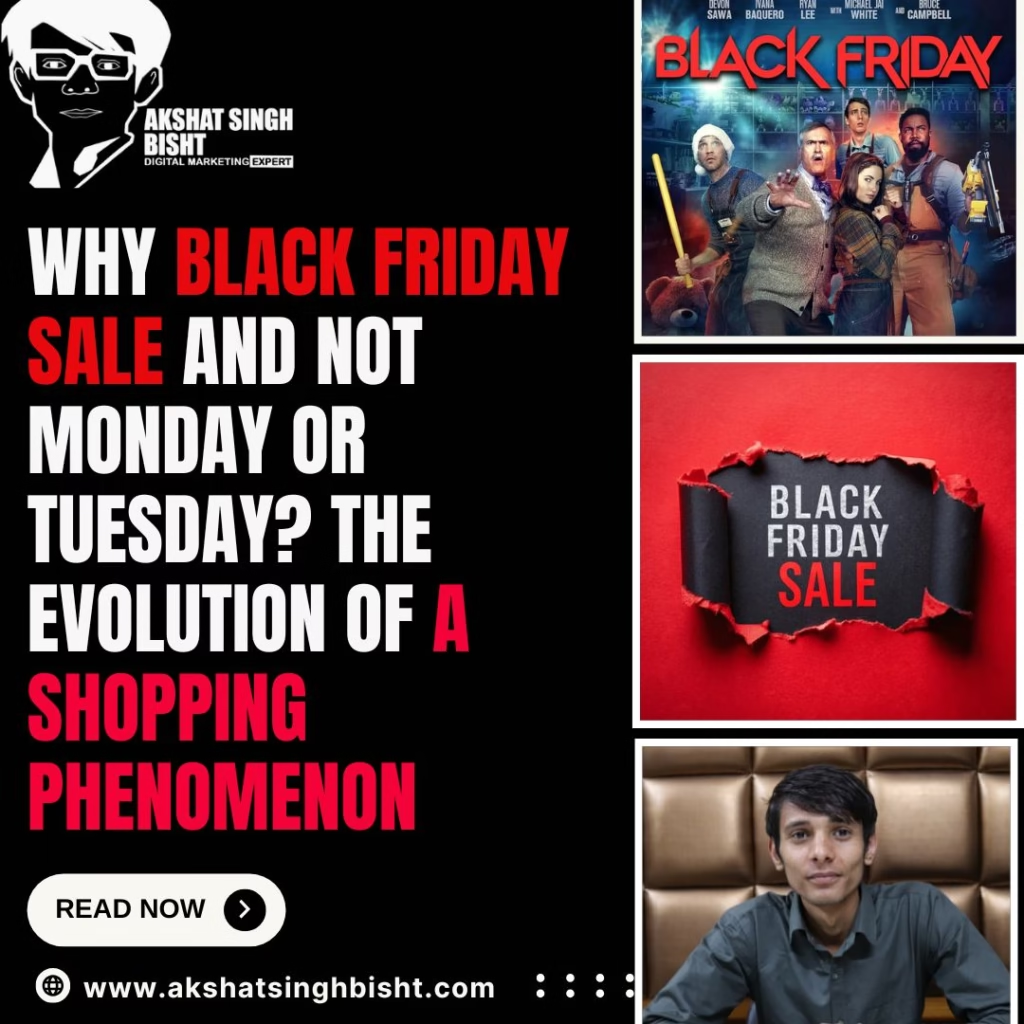Every year, the day after Thanksgiving transforms into a shopping extravaganza known as Black Friday. This event has become synonymous with deep discounts, doorbuster deals, and the unofficial start of the holiday shopping season. But why Black Friday? Why not a Monday or Tuesday? To understand this phenomenon, we need to delve into history, consumer behavior, and the strategic timing behind one of the biggest shopping days of the year.

The term “Black Friday” has its origins in the 1960s in Philadelphia, where it was used by police to describe the heavy and disruptive pedestrian and vehicular traffic that would occur the day after Thanksgiving. The name gradually spread, and by the 1980s, it had taken on a more positive connotation. Retailers began to use it to signify the point at which their businesses would turn profitable for the year, moving from the “red” (indicating loss) to the “black” (indicating profit).
The day after Thanksgiving is strategically advantageous for several reasons:
Holiday Season Kickoff: Thanksgiving marks the beginning of the holiday season in the United States. Families come together, and the festive mood sets the perfect stage for shopping. The proximity to Christmas creates a sense of urgency for consumers to start their holiday shopping.
Extended Weekend: Many people have the day off following Thanksgiving, creating a long weekend ideal for shopping. This extra day off provides consumers with ample time to take advantage of sales without the pressures of work.
Retail Strategy: Retailers capitalize on the fact that consumers are already in a spending mood, looking for gifts and holiday essentials. By offering significant discounts, they entice shoppers to spend more, thus kicking off the season with a strong start in sales.
Several psychological factors contribute to the success of Black Friday:
Scarcity and Urgency: The limited-time offers and doorbuster deals create a sense of scarcity and urgency. Consumers are motivated by the fear of missing out (FOMO) on great deals, prompting them to act quickly.
Tradition and Ritual: Black Friday has evolved into a cultural phenomenon. For many, it’s a tradition to shop on this day, whether it’s hunting for deals or simply enjoying the hustle and bustle of the season.
Group Dynamics: Shopping on Black Friday is often a social activity. Families and friends plan their shopping sprees together, making it a shared experience that adds to the excitement and appeal.
While Monday has its own shopping event known as Cyber Monday, it caters primarily to online shoppers and has a different dynamic compared to the in-store frenzy of Black Friday. Here’s why Monday or Tuesday didn’t become the main shopping day:
Work Schedule: Unlike the Friday after Thanksgiving, Monday and Tuesday are regular workdays for most people. This limits the time and flexibility consumers have to shop, reducing the potential for a massive turnout.
Continuity: Black Friday naturally follows Thanksgiving, creating a seamless transition from a day of gratitude to a day of shopping. A Monday or Tuesday sale would lack this continuity and the built-in momentum of the holiday weekend.
Marketing Momentum: Over decades, Black Friday has been cemented in the collective consciousness through extensive marketing and media coverage. Changing this established norm would require a significant shift in consumer behavior and retail strategy, which is unlikely given the entrenched success of Black Friday.
Black Friday has secured its place as a major shopping event due to its historical roots, strategic timing, and the psychological triggers it activates in consumers. The Friday after Thanksgiving offers a unique combination of factors that no other day of the week can match, making it the perfect storm for retailers and shoppers alike. While Monday and Tuesday have their own roles in the shopping calendar, it is Black Friday that reigns supreme, kicking off the holiday shopping season with a bang.
Akshat’s passion for marketing and dedication to helping others has been the driving force behind AkshatSinghBisht.com. Known for his insightful perspectives, practical advice, and unwavering commitment to his audience, Akshat is a trusted voice in the marketing community.
If you have any questions simply use the following contact details.